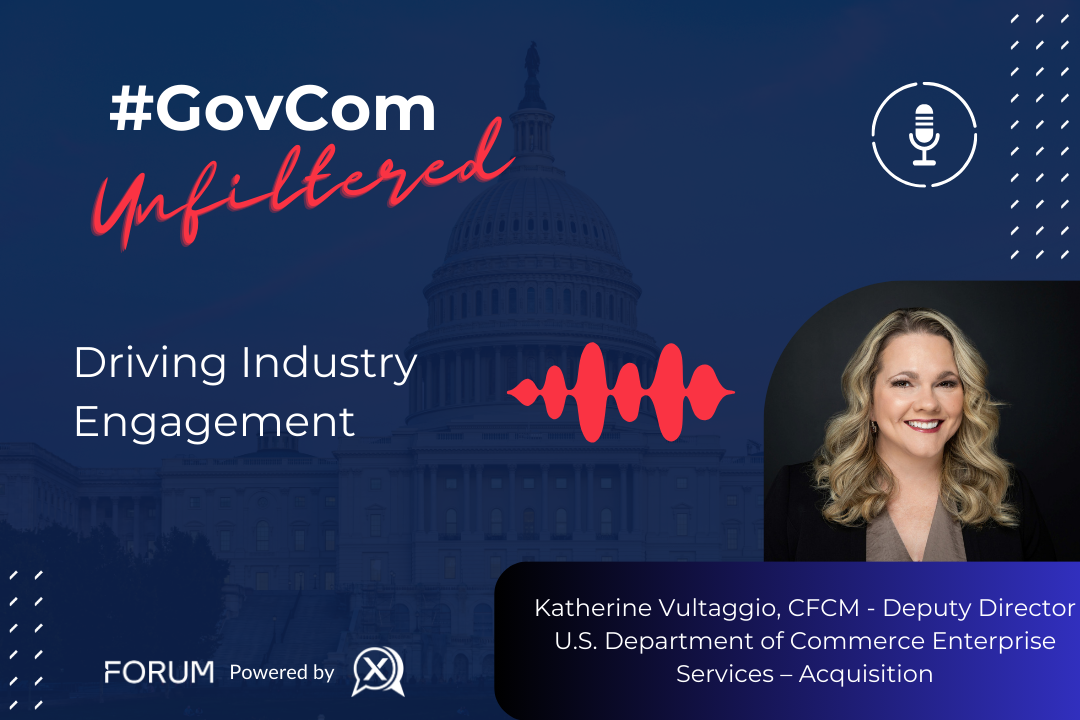Dr. Keith Campbell, Director of Informatics Architecture, Veterans Health Administration, Department of Veterans Affairs, being interviewed at the HIMSS19 Global Conference on February 11, 2019 in Orlando, Florida.
In today’s health care environment, there is a wide-range of systems used for managing patients’ electronic health records (EHR). This means when a patient sees a new doctor, in the private-sector or in a publicly funded health care system, the information transfer from one EHR system to another may be incompatible, incomplete, or contain errors – all of which can lead to real safety concerns.
An award-winning Department of Veterans Affairs (VA) initiative, Solor (the System of Logical Representation), is tackling this problem by redefining how health care information needs to be interpreted to truly achieve the promise of health care information technology (IT): to improve patient health outcomes and safety.
Recently, FedHealthIT’s Executive Vice President, Susan Sharer, had the opportunity to interview the founder of Solor, Dr. Keith Campbell, Director of Informatics Architecture at the Veterans Health Administration (VHA), to get an update on this innovative interoperability solution.
How Solor Works
Dr. Campbell and his VA team created a system called Solor, which can translate and integrate the many, varied terminologies used in electronic health records into a unified language understood by all. Current systems require a manual mapping process, which is costly and error-prone. Dr. Campbell says Solor can overcome this issue by transforming and simplifying the representation of clinical data, while retaining its semantic meaning when data is transferred.
Since the initial launch of Solor in 2017 at the Healthcare Services Platform Consortium (HSPC), a provider-led organization composed of over 270 contributors from the wider health care community, Dr. Campbell’s team has added features to allow users to retain the integrity of their customized clinical data when shared within their organizations and with outside health systems.
By using open source software for this transformation, Solor enables developers to collaborate and convert any user-supplied terminologies into a single, shareable model. This dramatic simplification represents a paradigm shift in how developers consume terminology, and thereby enables collaborative improvement in medical knowledge, patient care, and patient safety.
Implementation Beyond VA
“Demonstrating what is possible with Solor was only a beginning. We always planned on transitioning Solor from innovation to impact,” Dr. Campbell said about winning the FedHealth IT Innovation Award last year. “The award helped drive Solor to work with the health IT community towards implementation opportunities beyond VA.”
Solor’s reception following the Innovation Award has been humbling, according to Dr. Campbell. Over the past year, many organizations, including the Food and Drug Administration (FDA), have approached the Solor team to develop specific extensions to address semantic interoperability issues. Furthermore, Solor is being considered for potential commercial use cases both nationally and internationally in the future.
As the wider health care community became interested in adopting Solor, the team began to work toward integrating genomic data into a common ecosystem with cancer data so treatment options can be better modeled from actual patient genotype and phenotype data. Furthermore, as the health care world is adapting to newer standards over time, Solor is working with the latest standards for exchanging healthcare information electronically, such as the Health Level Seven International (HL7) Fast Healthcare Interoperability Resources (FHIR). Solor is integrating its concepts within FHIR terminology services, so it will form a foundation for semantic interoperability for the future.
Collaboration with the Health IT Community
Recently, the Solor team partnered with the FDA Systemic Harmonization & Interoperability Enhancement for Lab Data (SHIELD) working group, composed of over 50 device manufacturers and other health care organizations that are focused on the interoperability of clinical device and laboratory data.
“In the initial stages of this unique collaboration, Solor will work with various lab device manufacturers to help them encode terminology data and simplify the data sharing process between vendors and laboratorians,” said Dr. Campbell. “From the results of this effort, Solor can become the marketplace standard for laboratory terminology data quality and enable clinical devices to be better integrated with patient records for better outcomes and safer care.”
The Solor team is actively working with a multitude of health care organizations from Federal Government agencies such as the FDA, Centers for Medicare and Medicaid Services (CMS), Social Security Administration (SSA), and the Centers for Disease Control and Prevention (CDC), as well as private sector companies such as Clinical Architecture, Intermountain Healthcare, Digital Bridge, and Wolters Kluwer, to support their use of Solor to improve upon the semantic interoperability of their services and products.
Solor Improves VA and Private-sector Seamless Care
Wider adoption of Solor will help VA and Veterans by simplifying electronic health information exchange with private sector partners and enabling more reliable coordinated care. This adoption matters for the implementation of the MISSION Act. As the data quality improves through Solor, VA will have the sustained effectiveness of clinical decision support tools necessary for a high-reliability organization while providing seamless care to Veterans.
Semantic interoperability of health care data is not a VA-only problem, or a Government-only challenge. As more health care entities and other agencies begin to understand the value of Solor’s foundational interoperability solution, the demand for inter-agency collaboration increases. Moving toward interoperability fulfills the true promise of health IT and more seamless, safer care for all patients.
What is Next for Solor?
As Solor continues to grow in 2019, more meaningful collaborations with agencies and health care organizations beyond VA will evolve. Solor is working with its early adopters to develop and improve upon the application’s features and capabilities. Early adopters will begin to improve upon existing terminology standards, integration processes, and build clinical decision support artifacts on top of Solor’s foundation.
VA and the Solor team will continue to demonstrate the importance of an effective semantic interoperability architecture in the health IT community with organizations such as the Healthcare Services Platform Consortium (HSPC), as well as build real world applications that will improve the data quality and patient safety for organizations, an example being the collaboration with FDA SHIELD, where the Solor team will validate the proof of concept for how Solor can help device manufacturers integrate and manage their data catalogs.
How to Get Involved with Solor
If you are interested in learning more about how Solor can benefit your organization, check out the website at solor.io.
Solor was a recipient of last year’s FedHealthIT Innovation Award and gained momentum in the health IT world after being showcased as a flagship VA Seamless Health solution at last month’s HIMSS Global Conference in Orlando, FL. An open-source health standards integrator, Solor brings an integrative approach to terminology management so health care providers can preserve the semantic meaning of health data when it is transferred from one electronic health record to another. By reducing the complexity of representing clinical data, Solor improves the data quality and supports clinical systems to perform more reliably with accurate analytics and computerized decision support.












